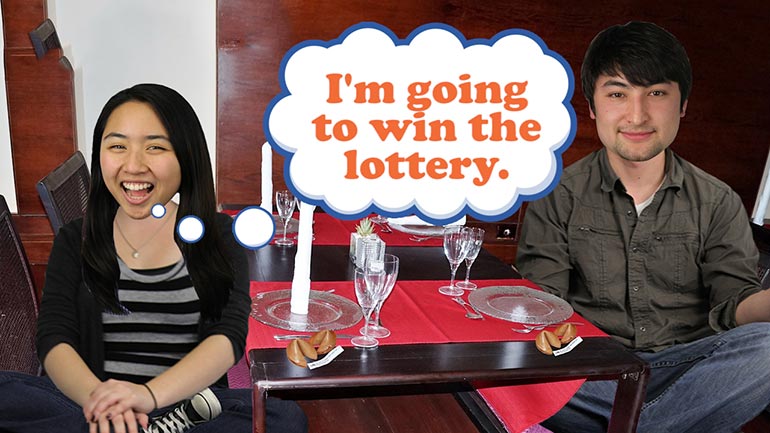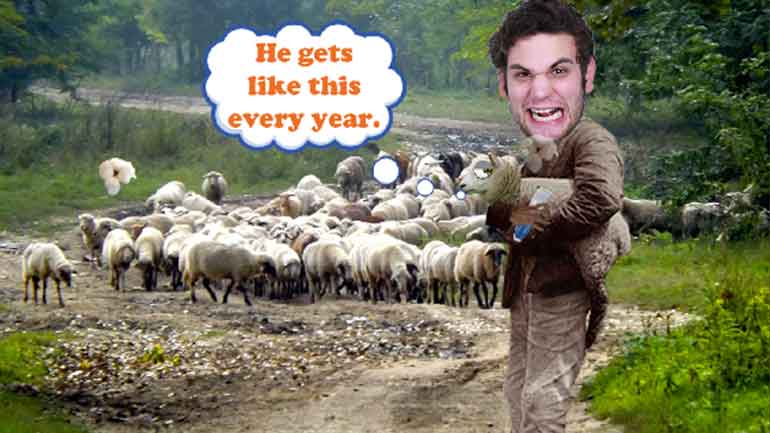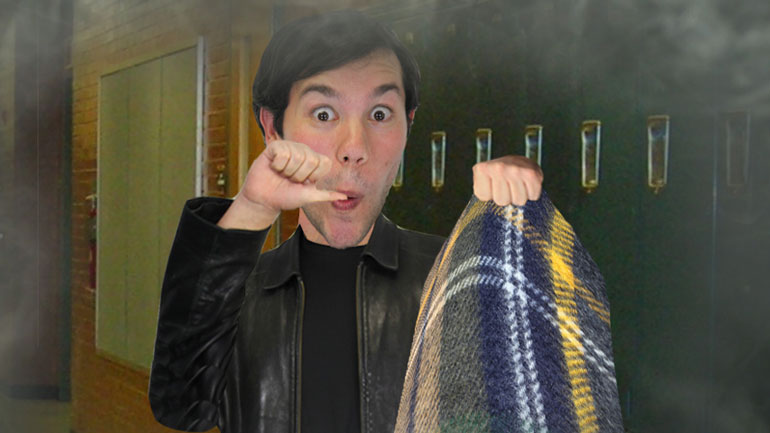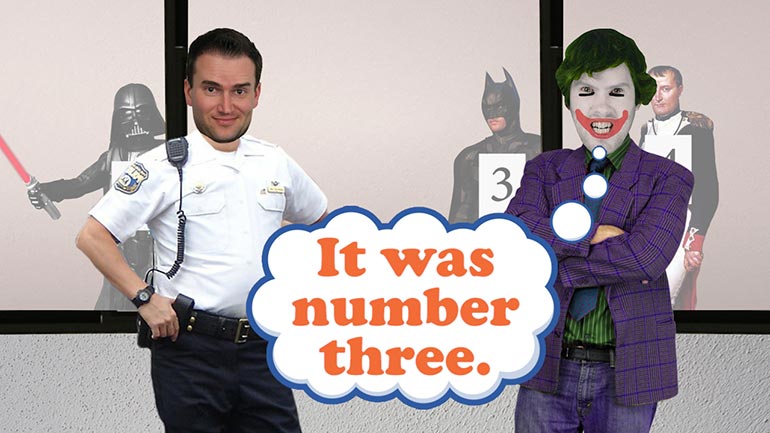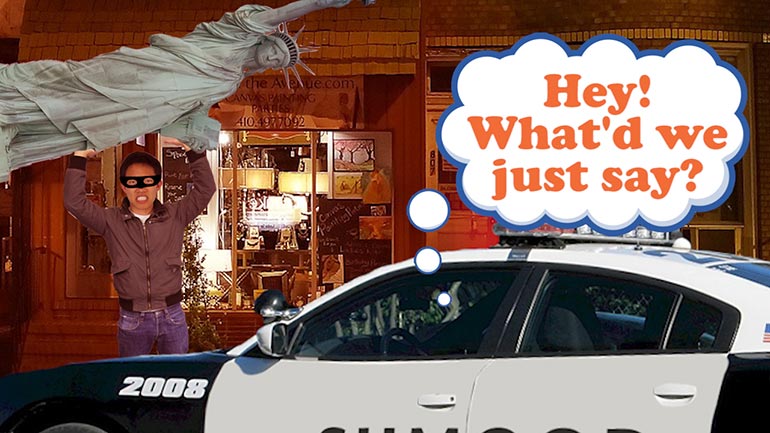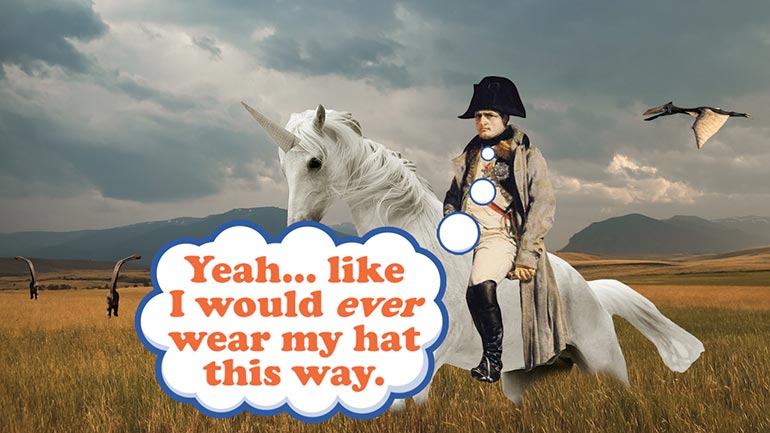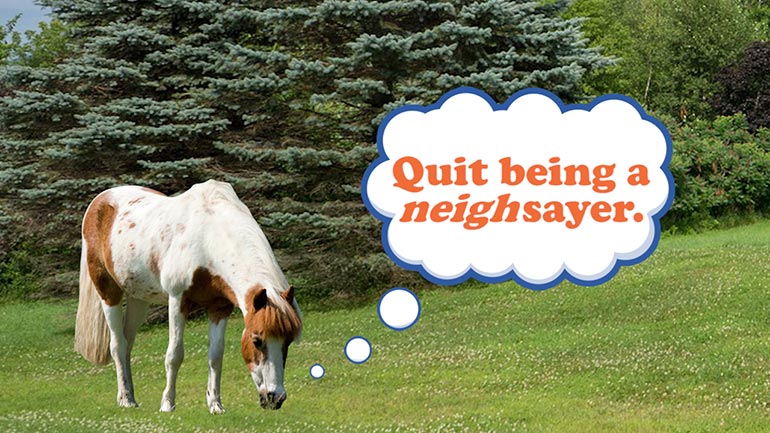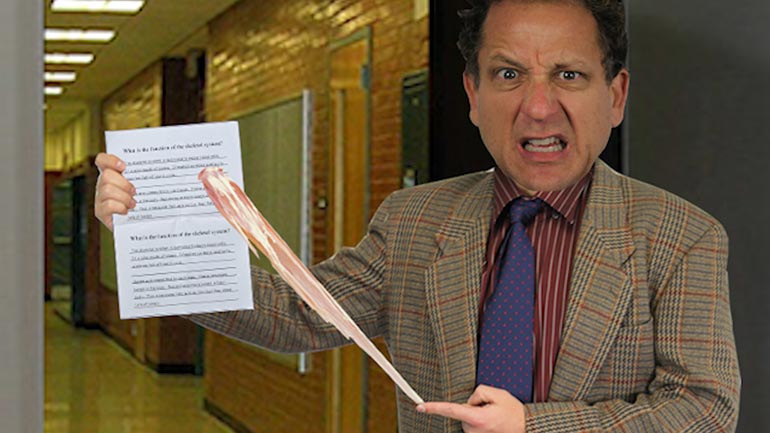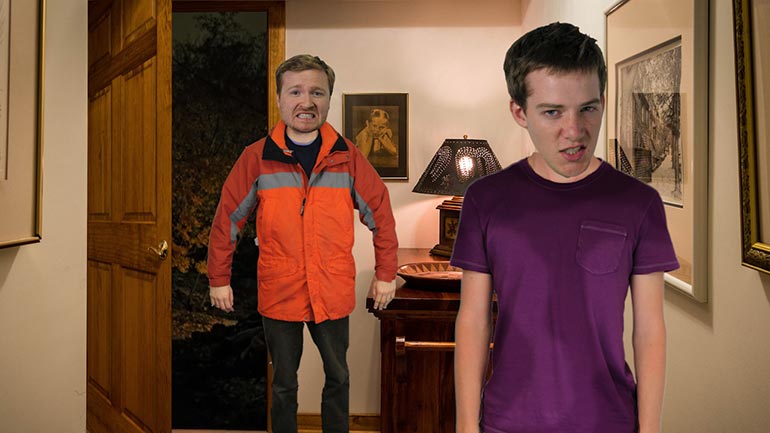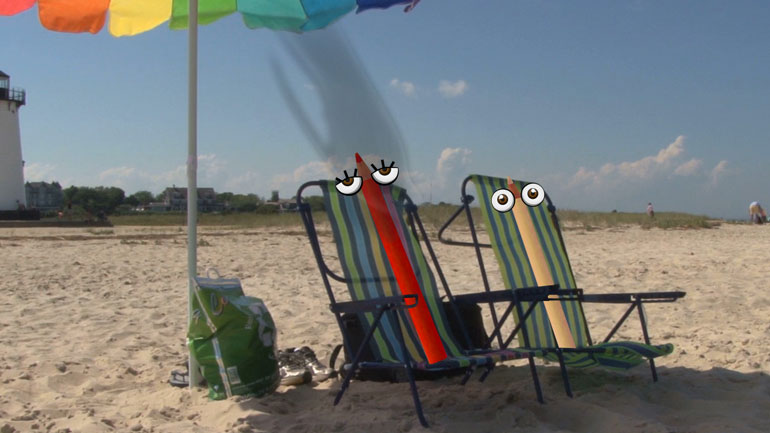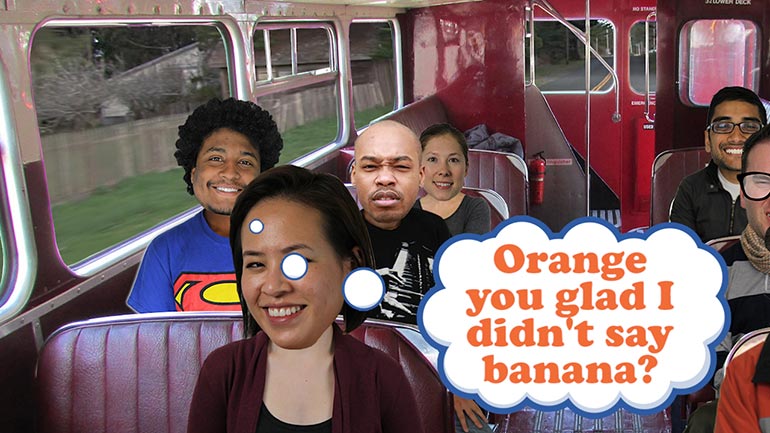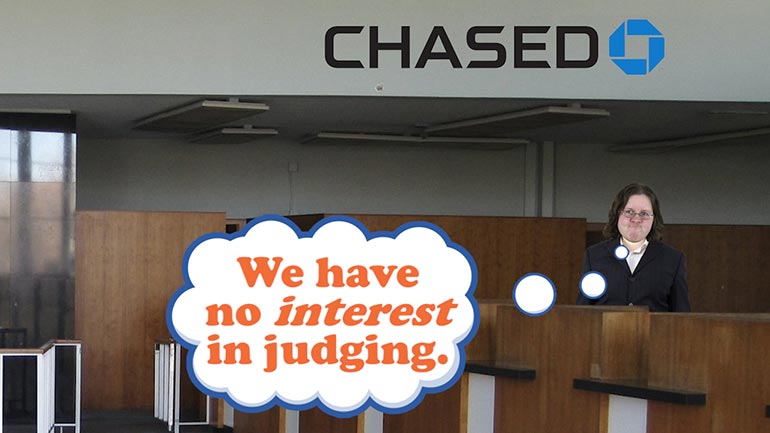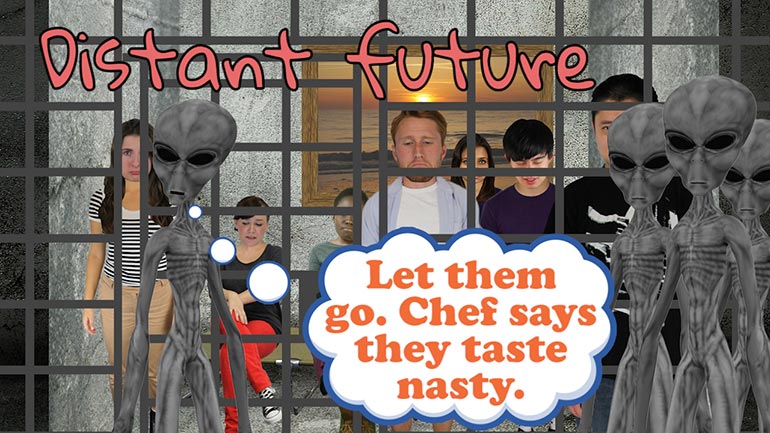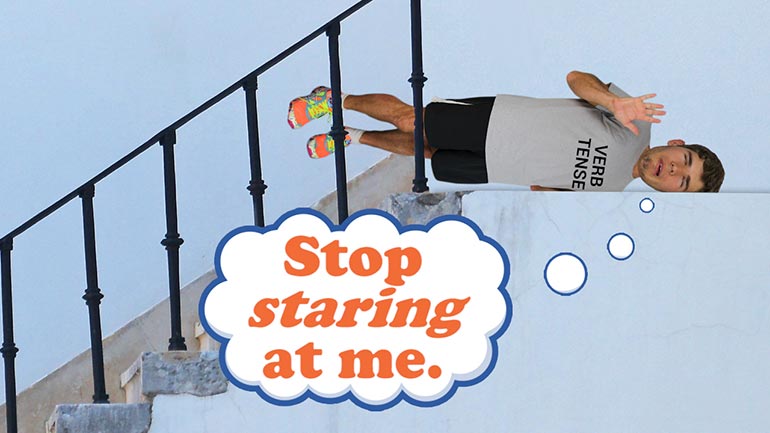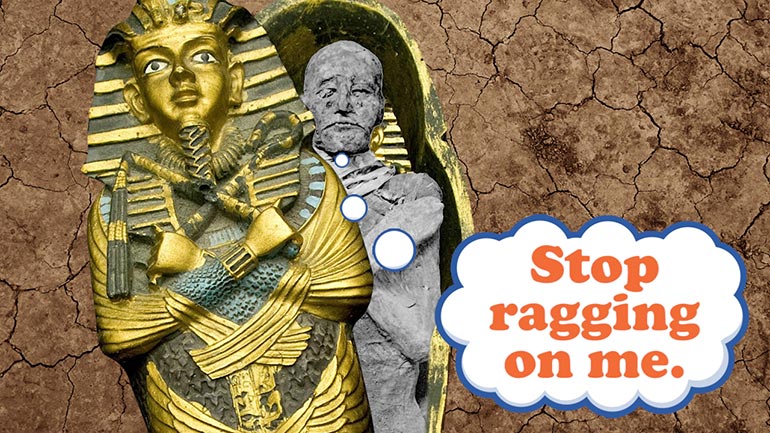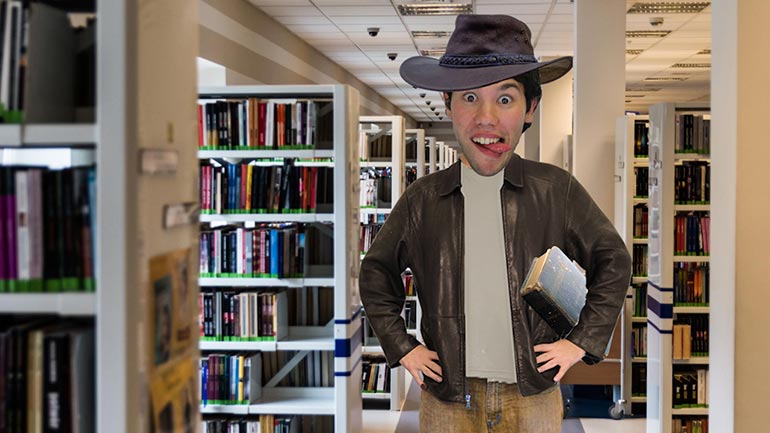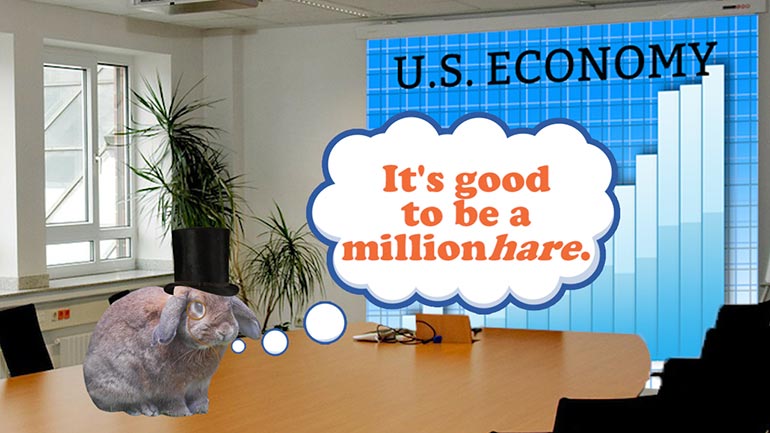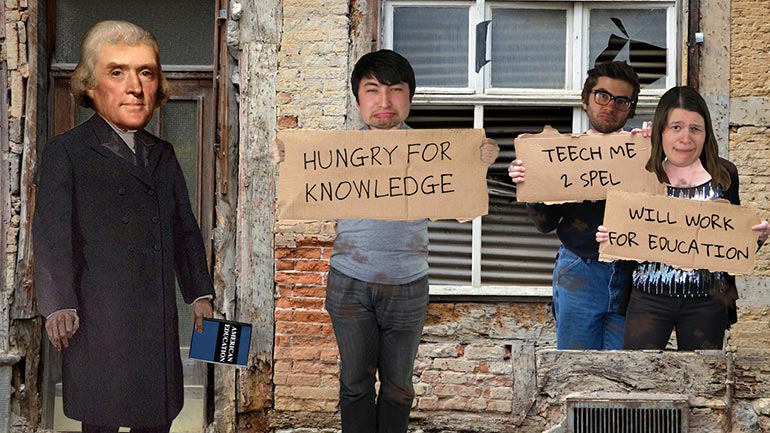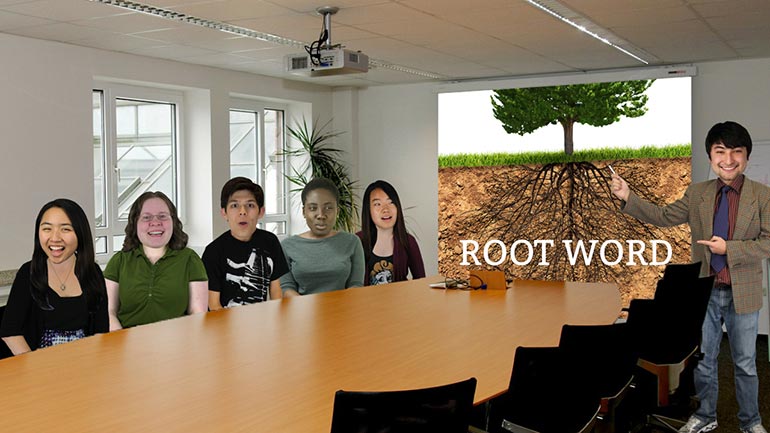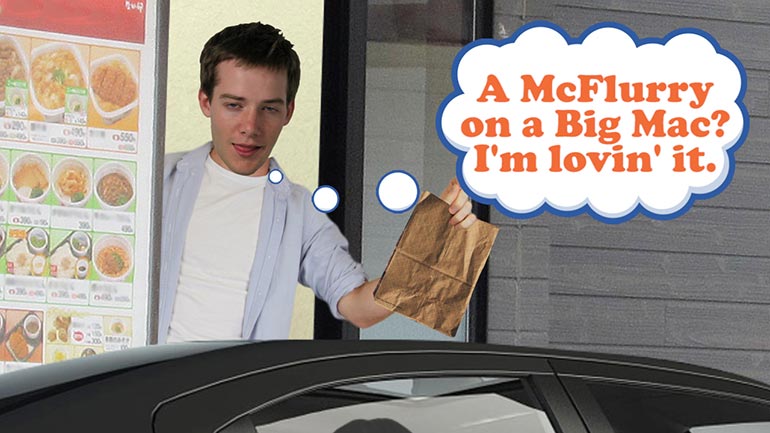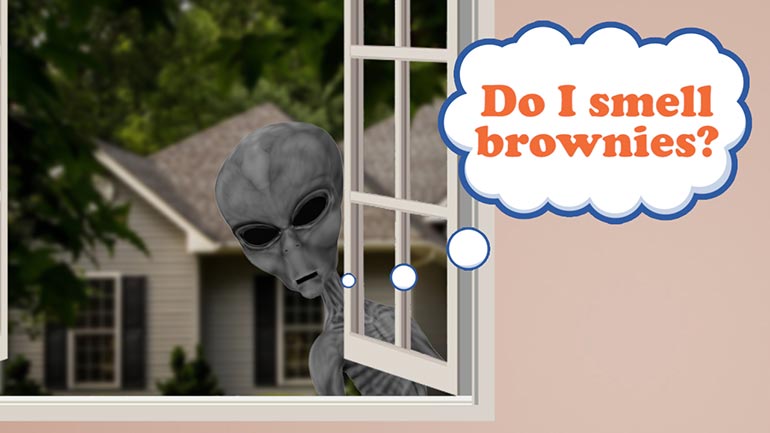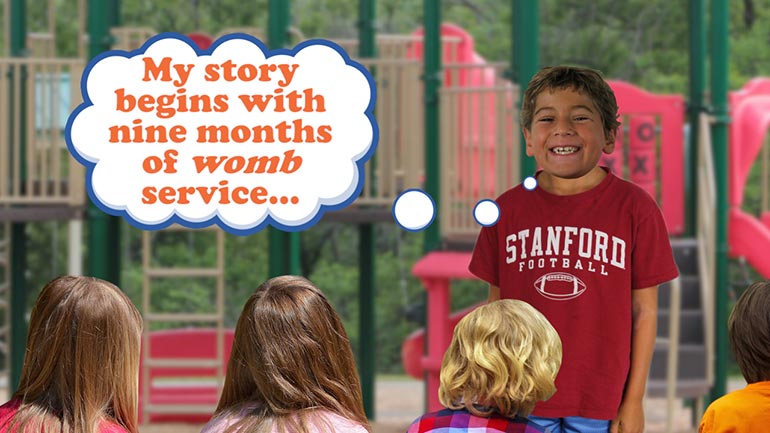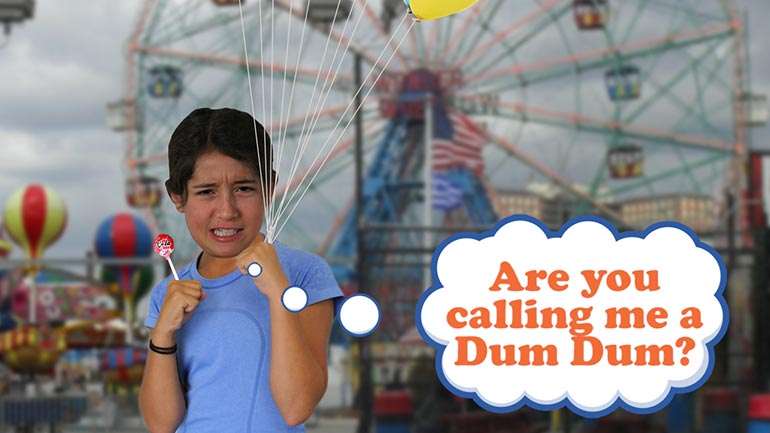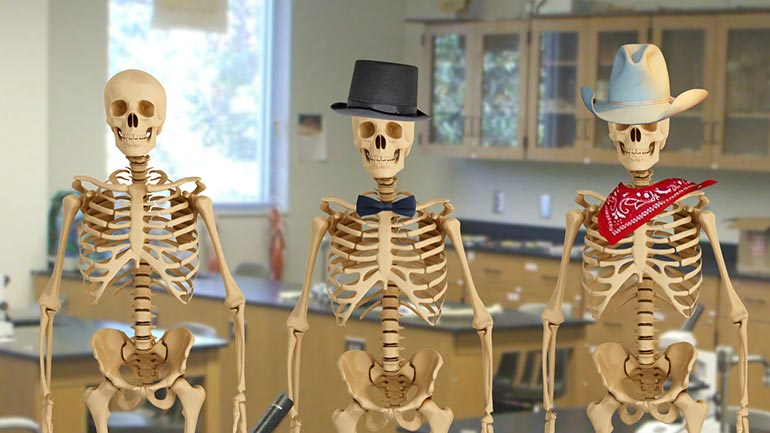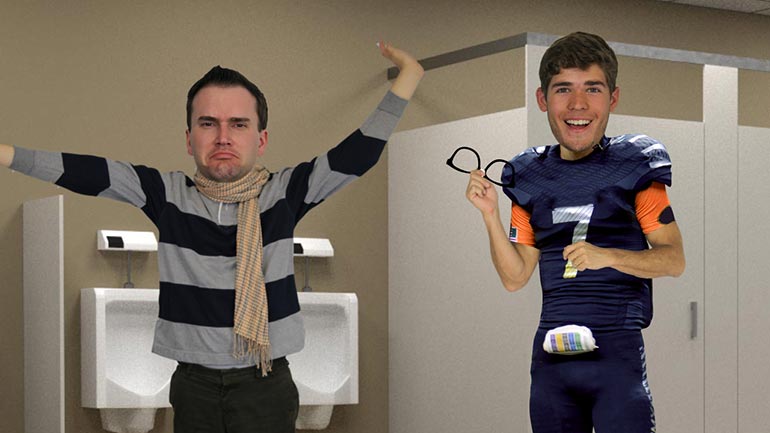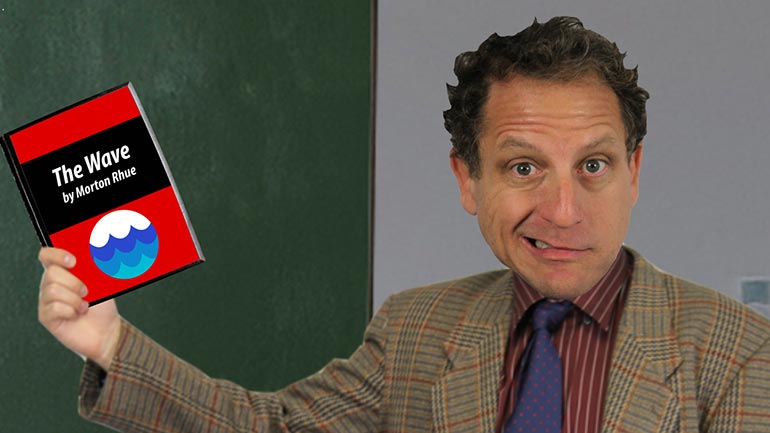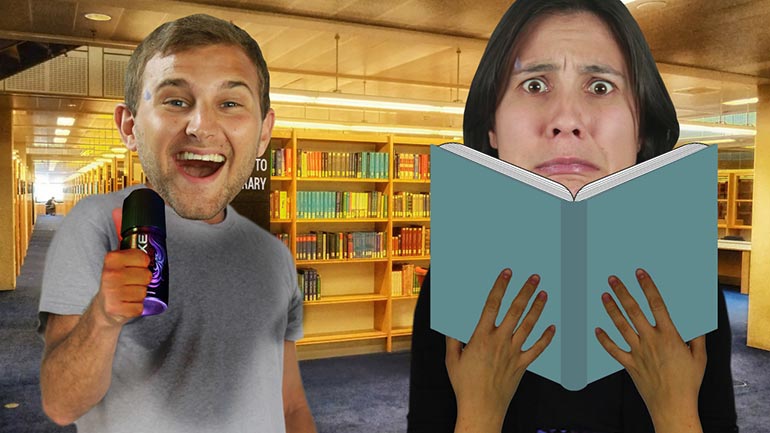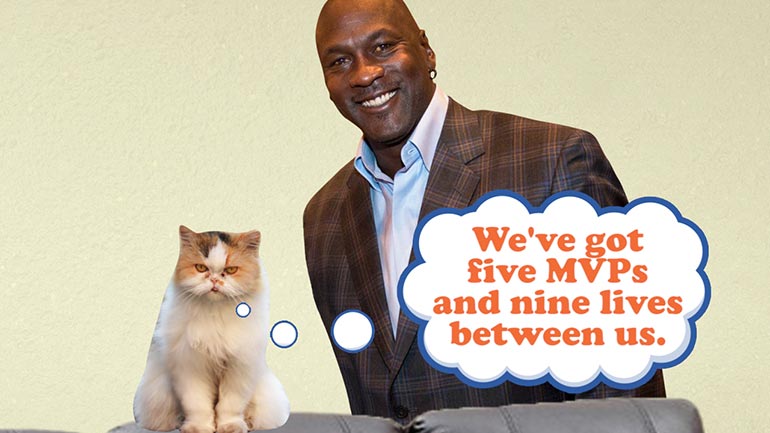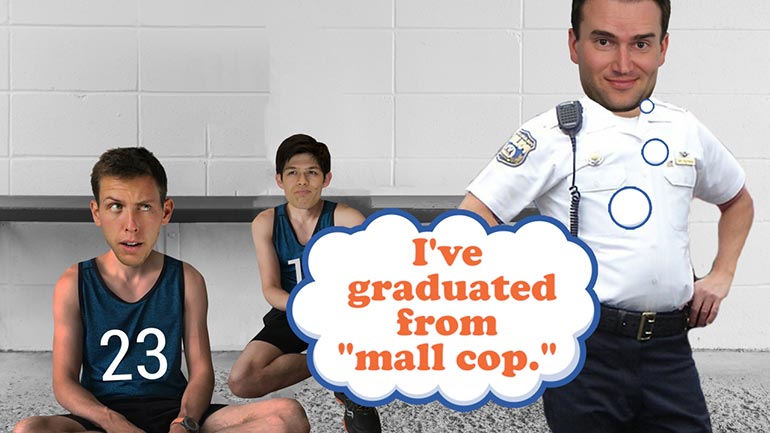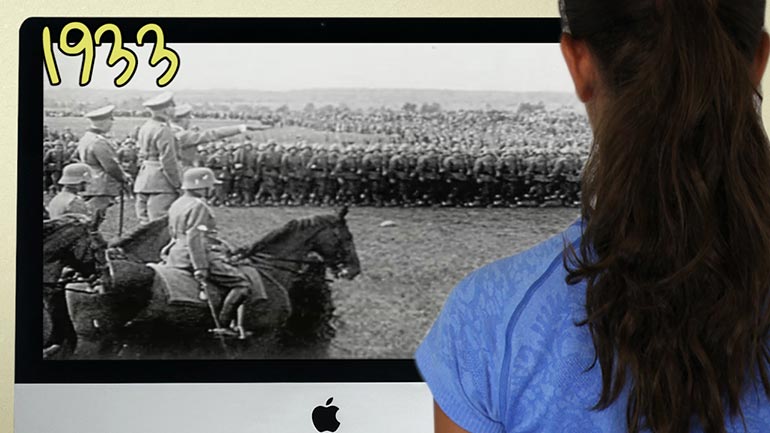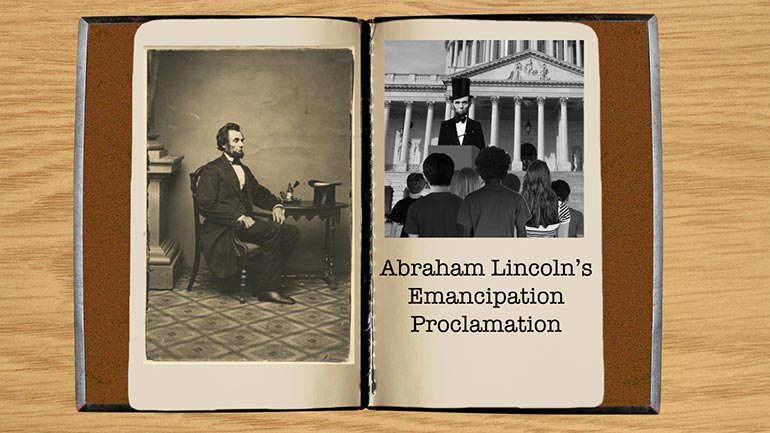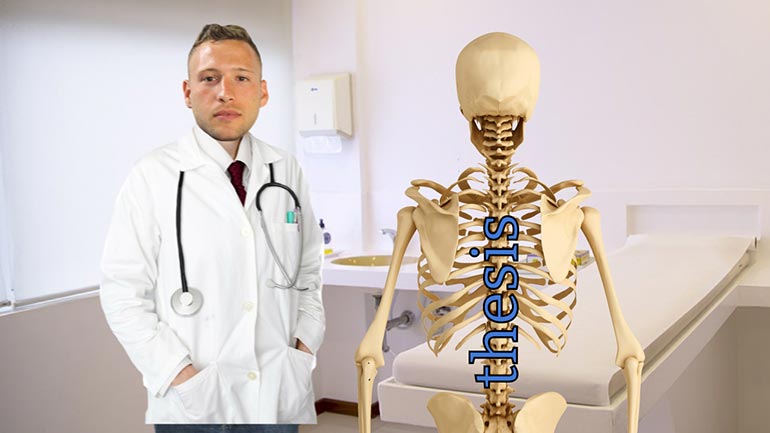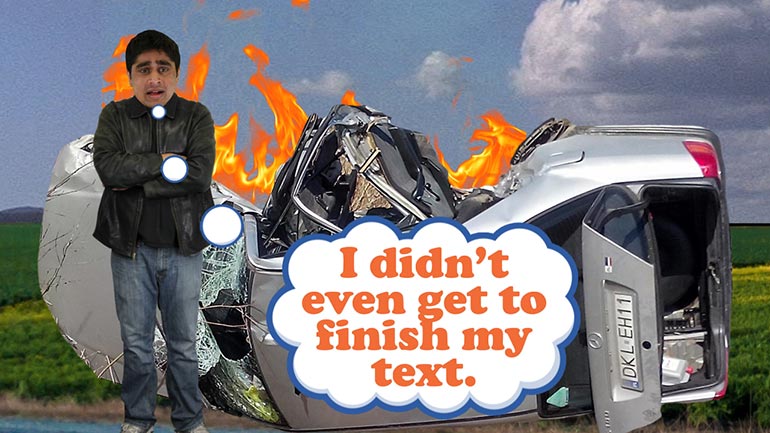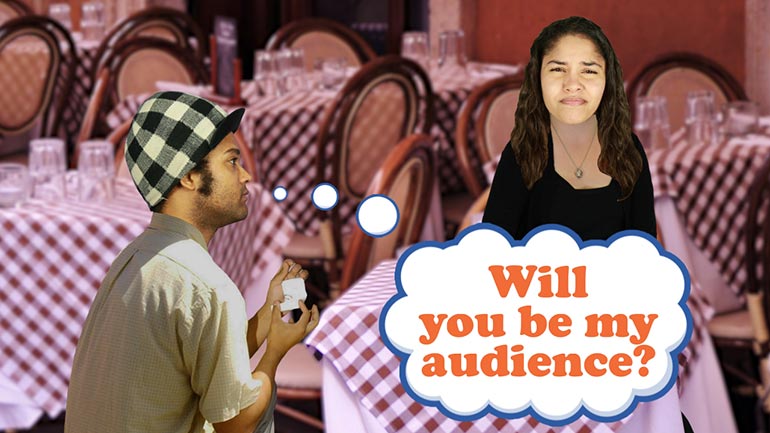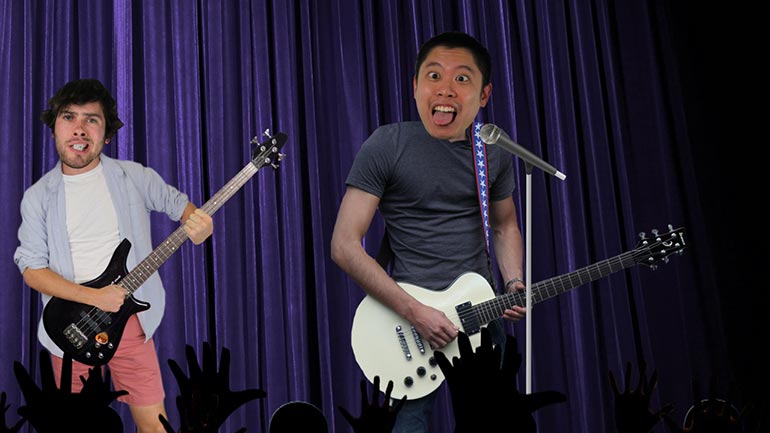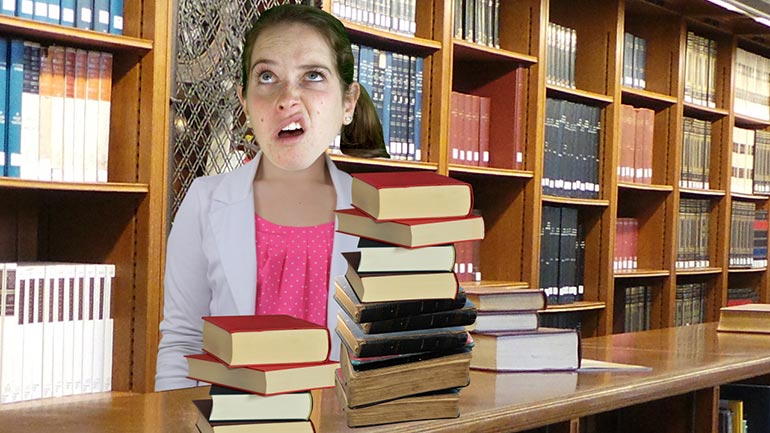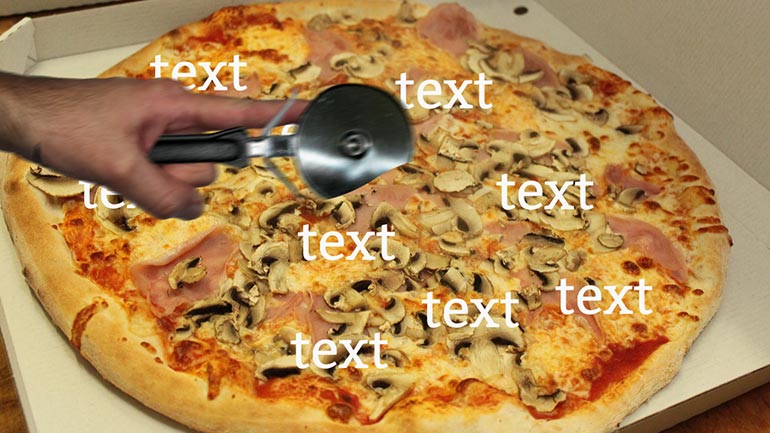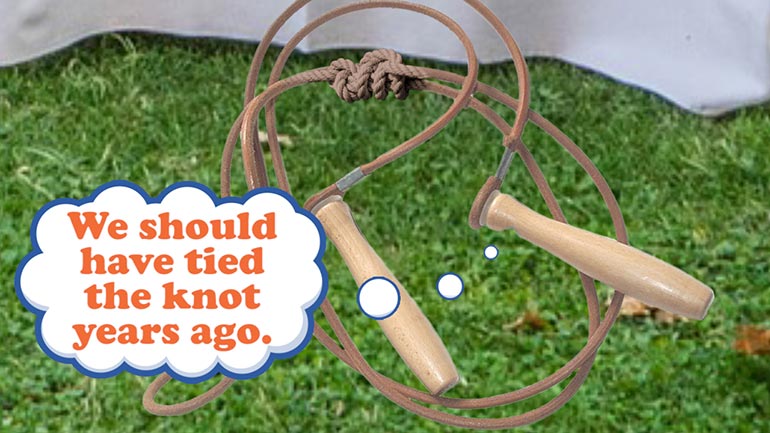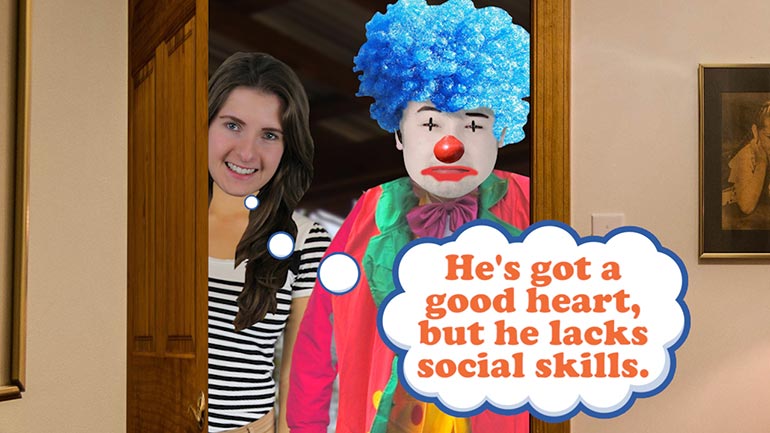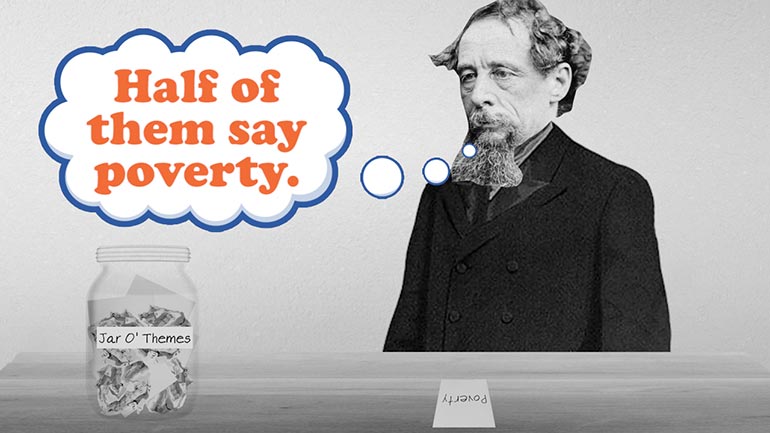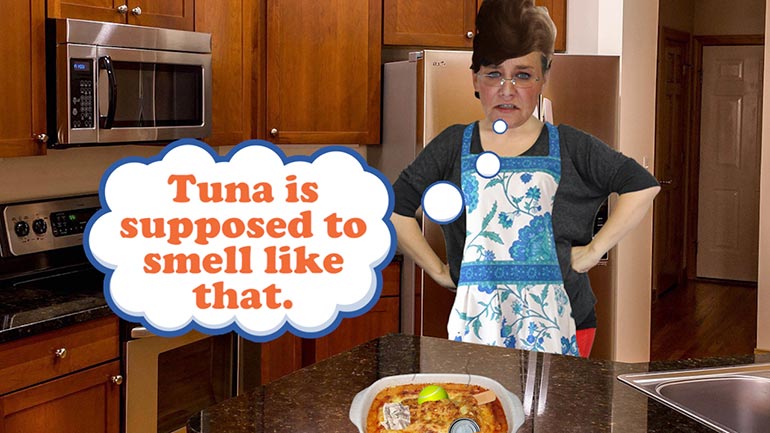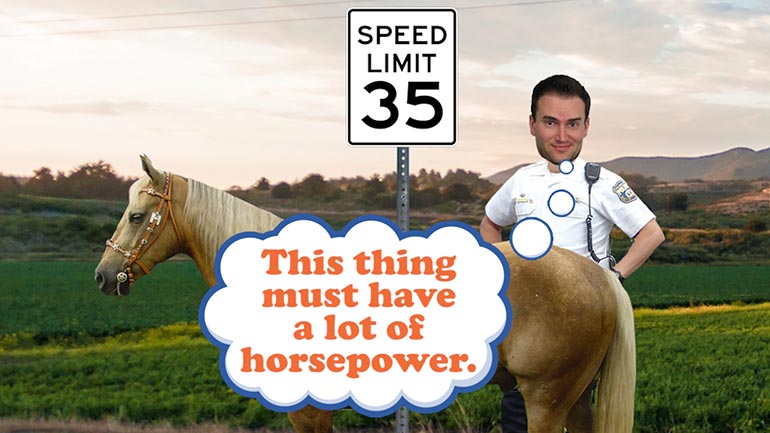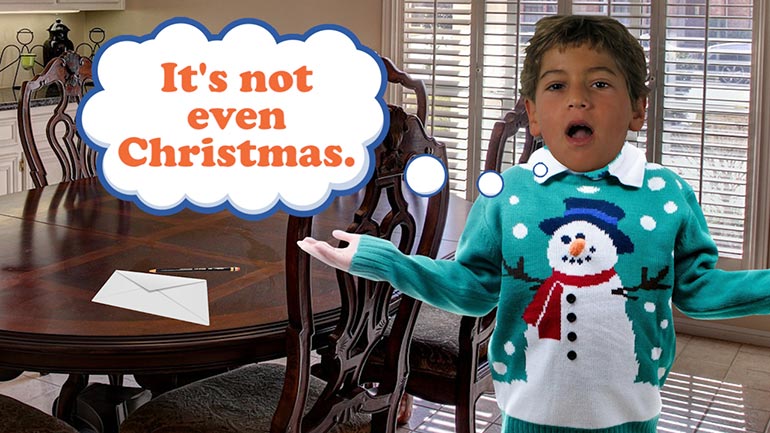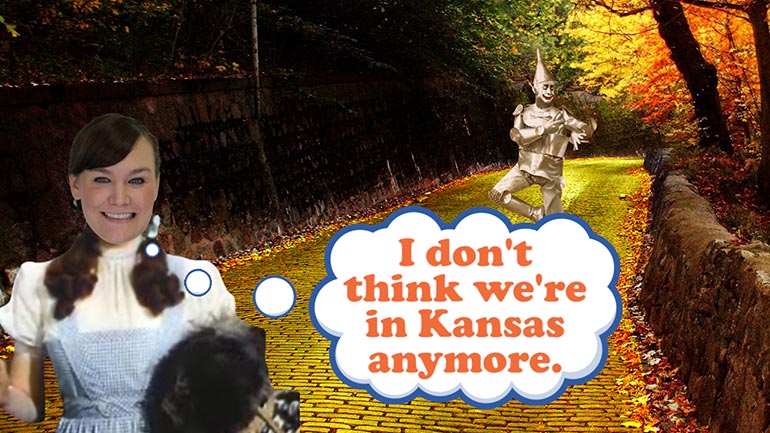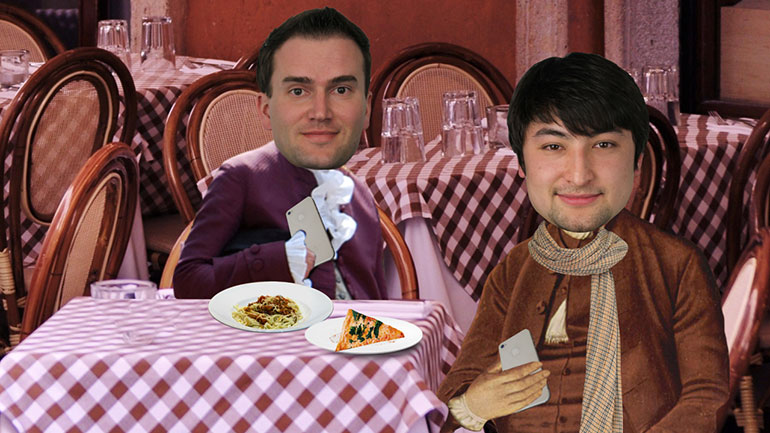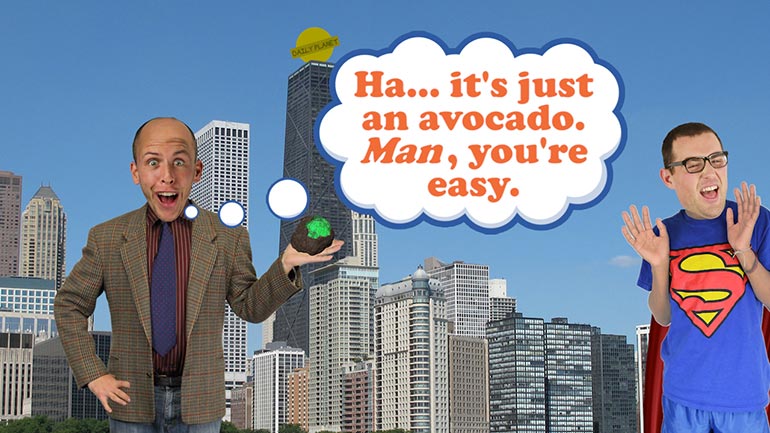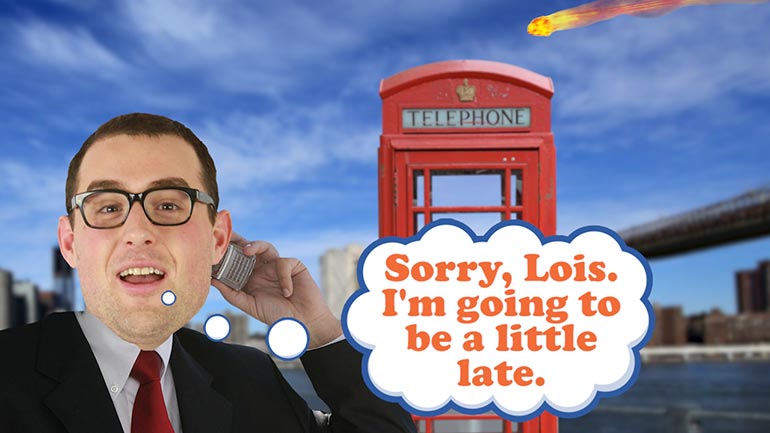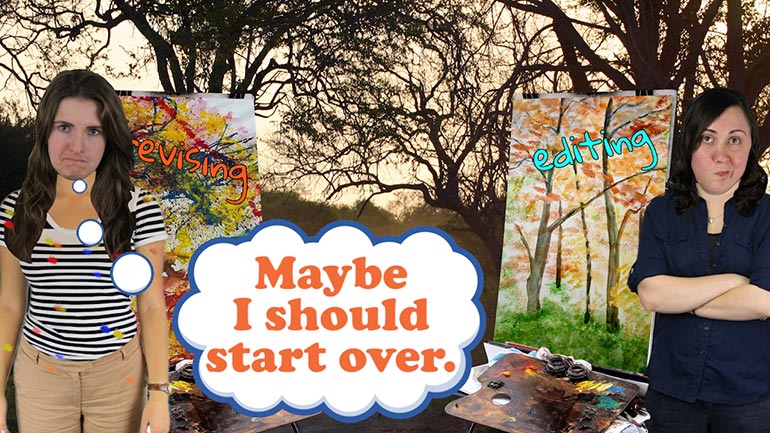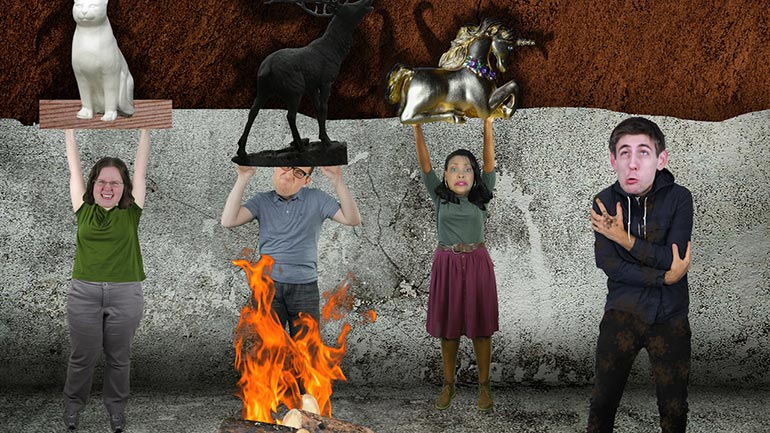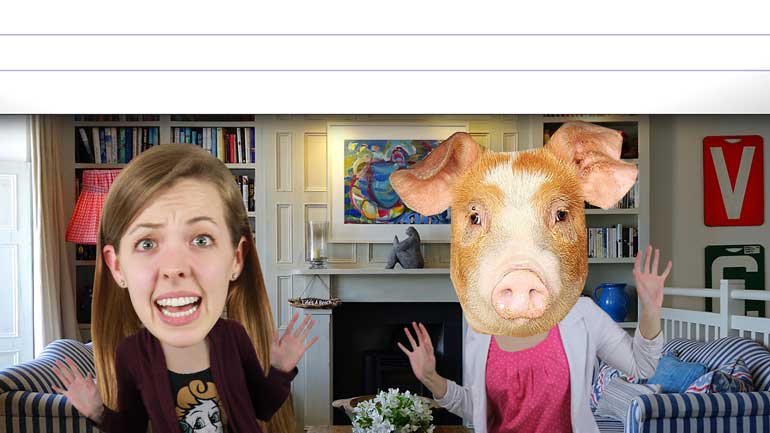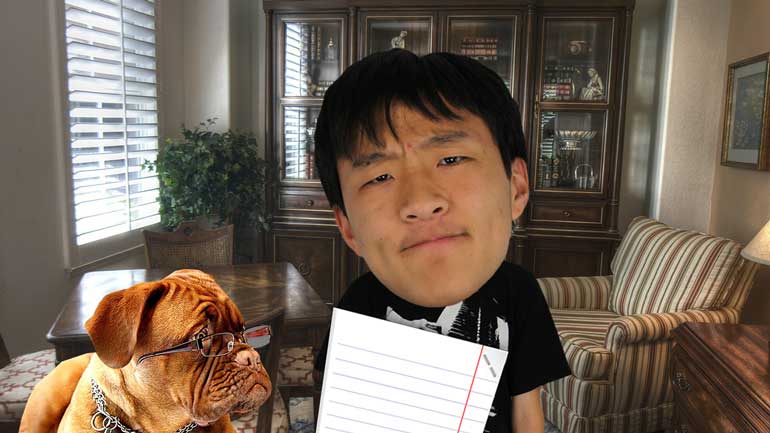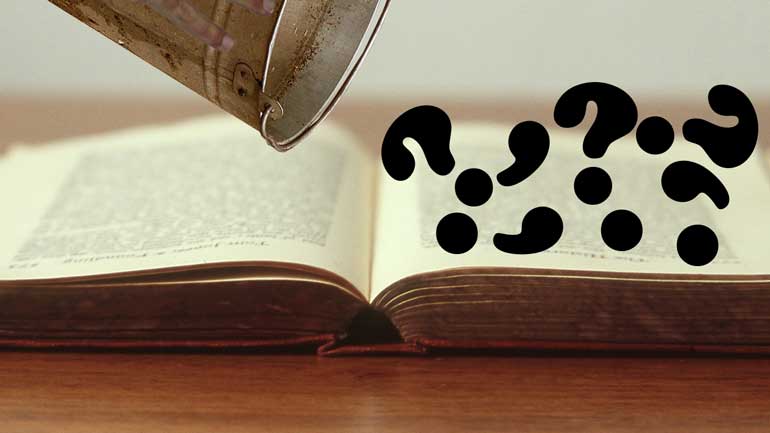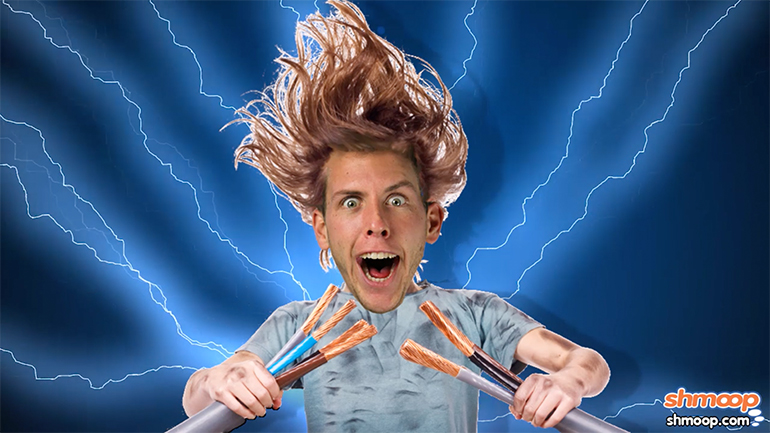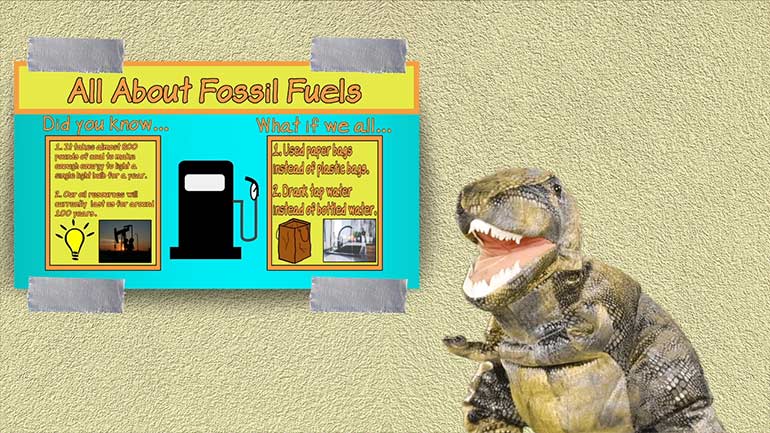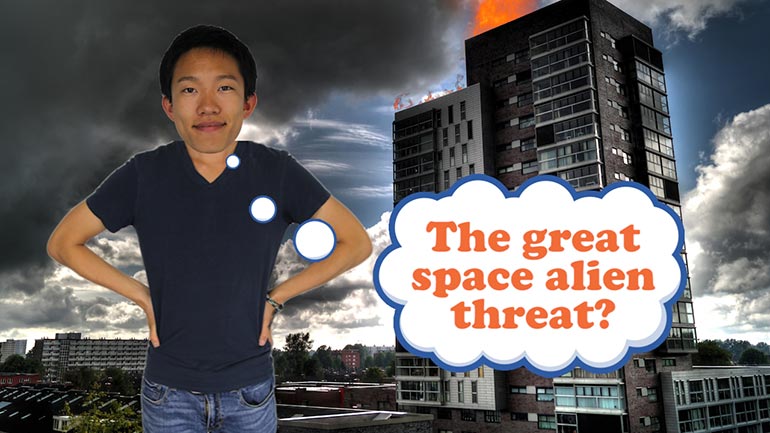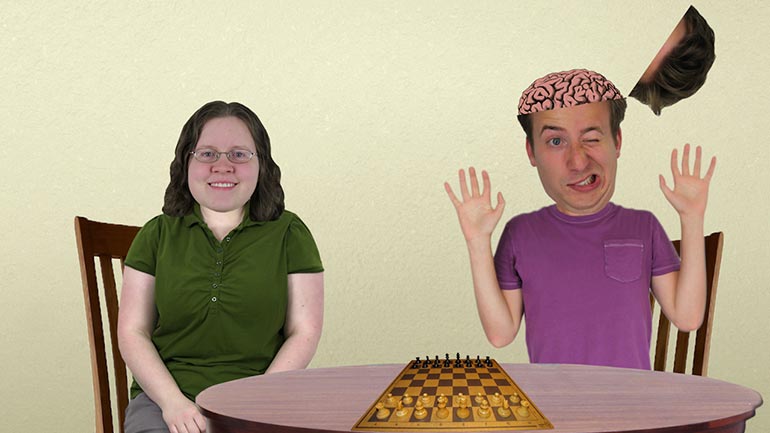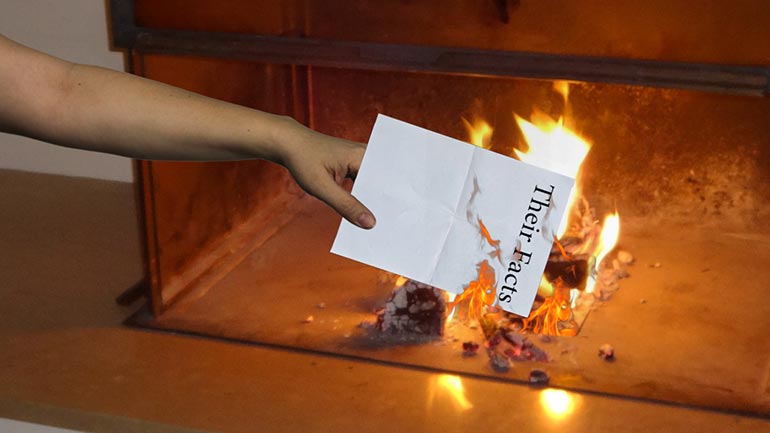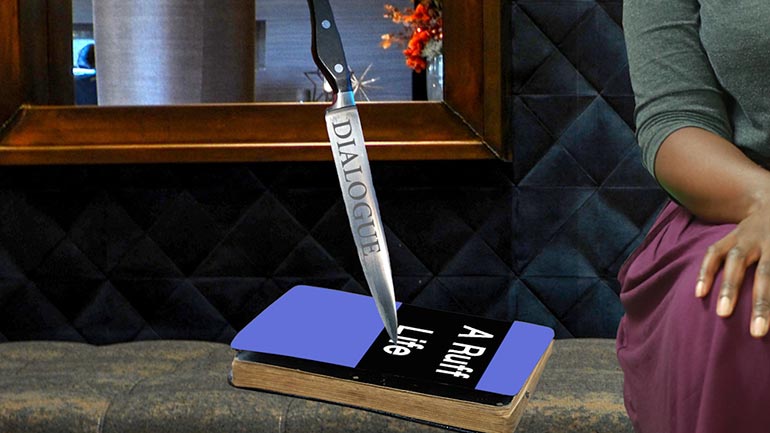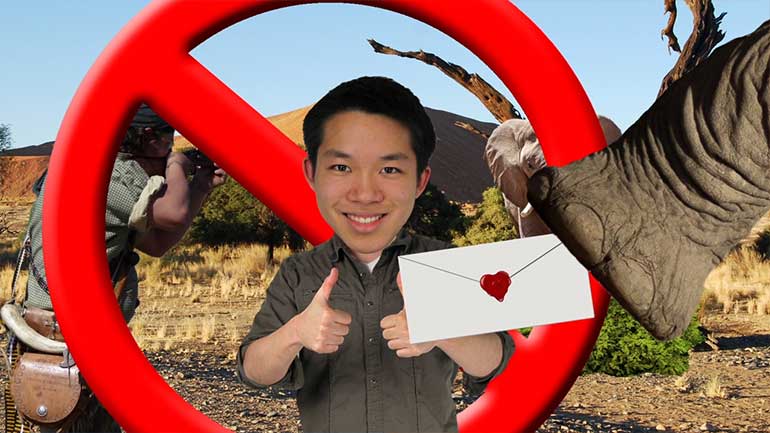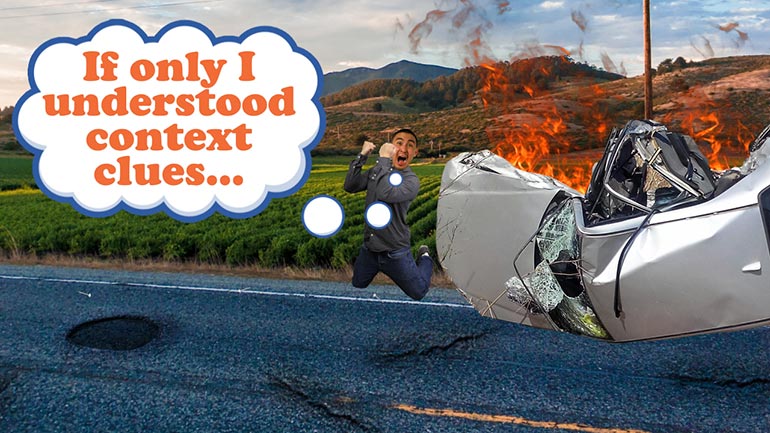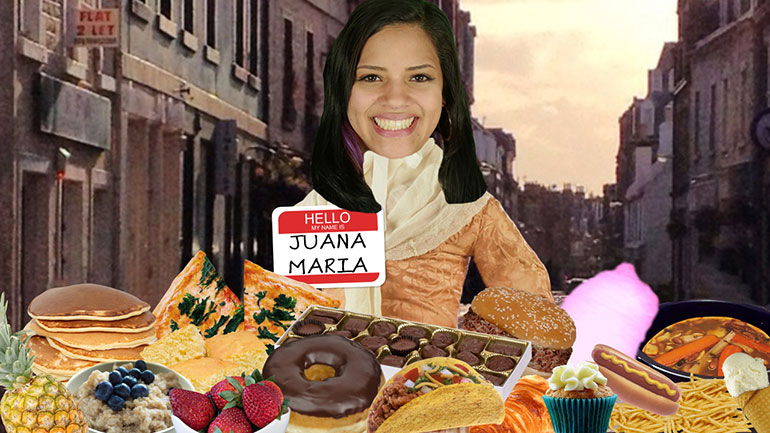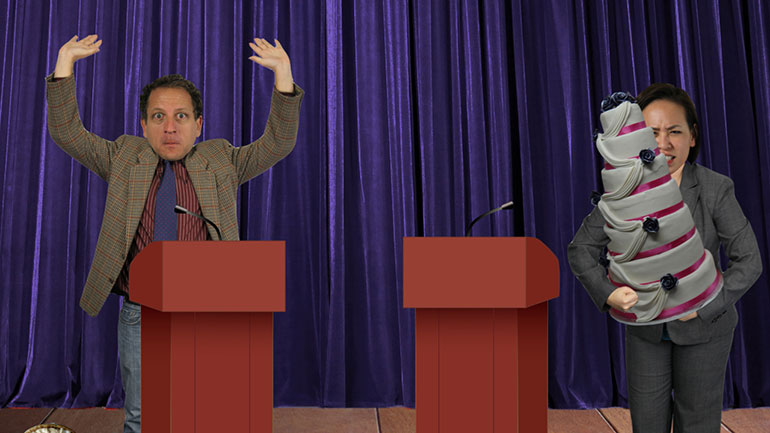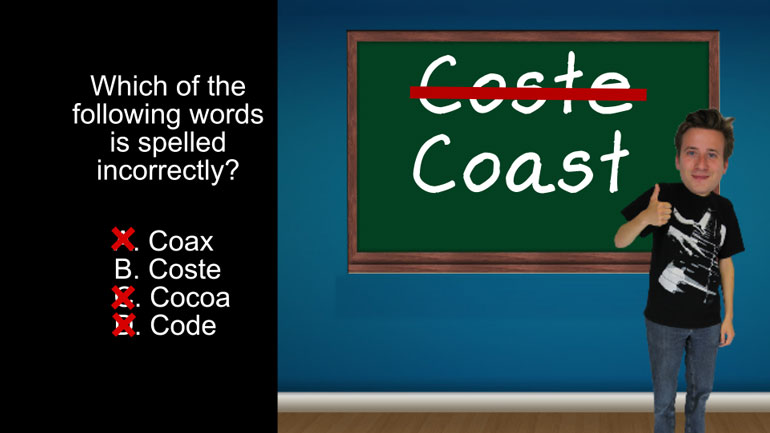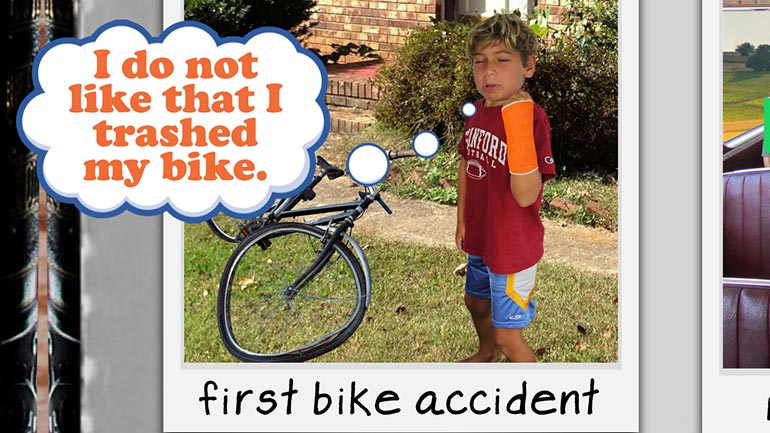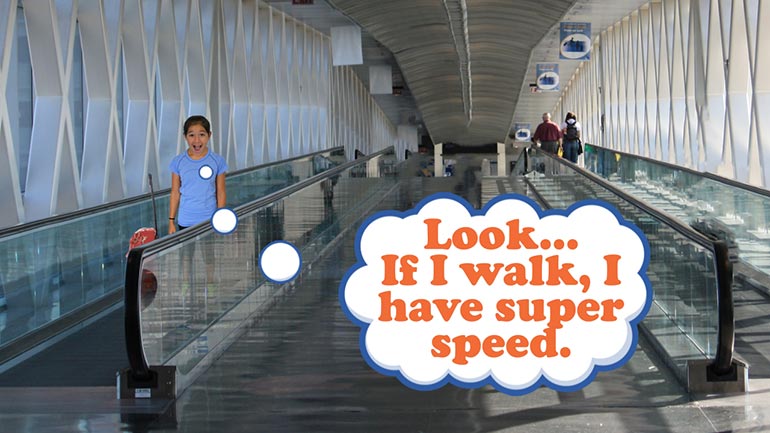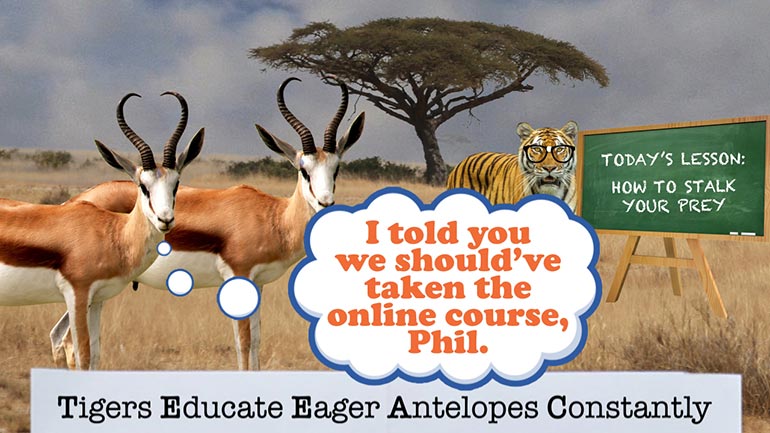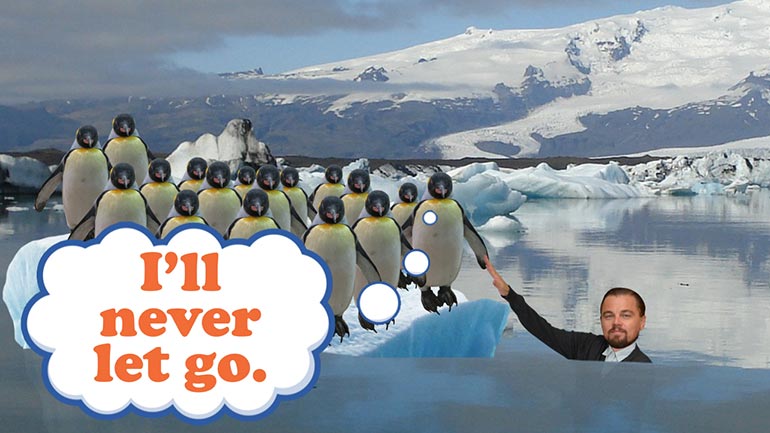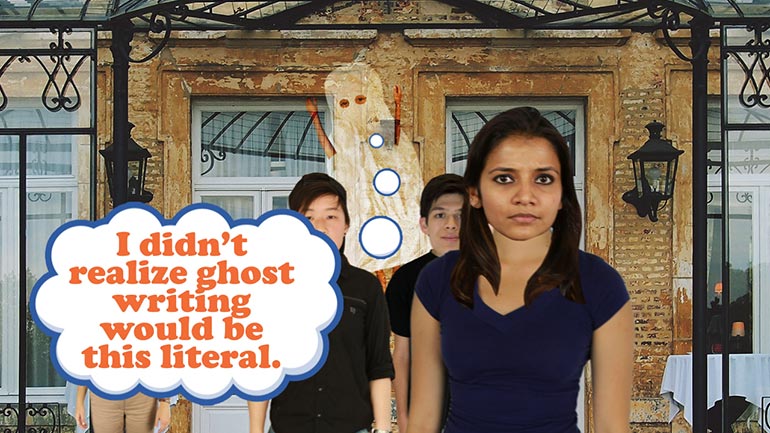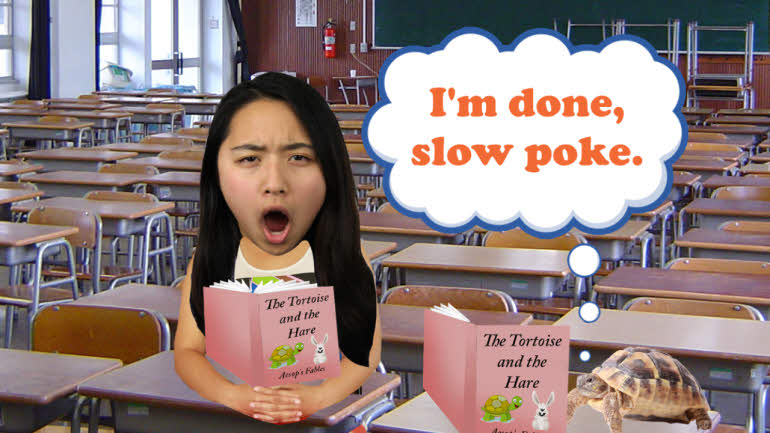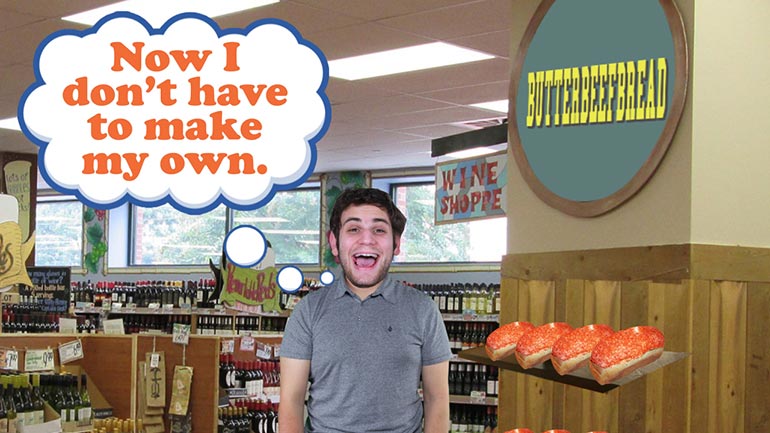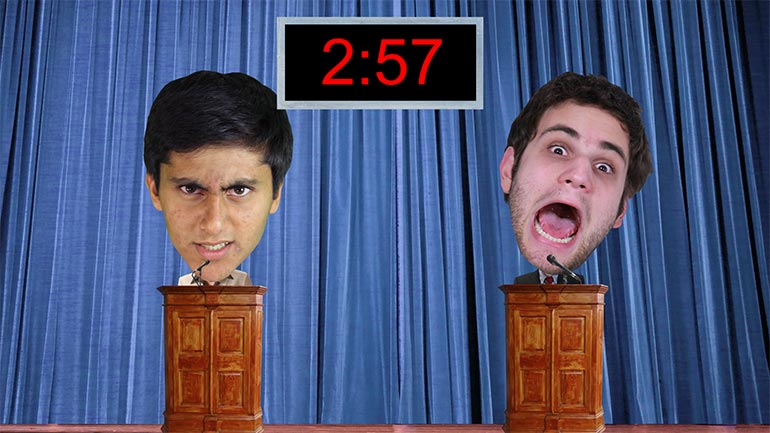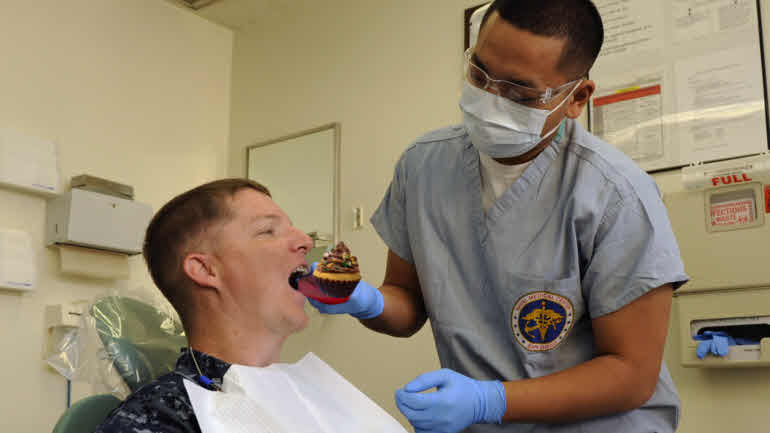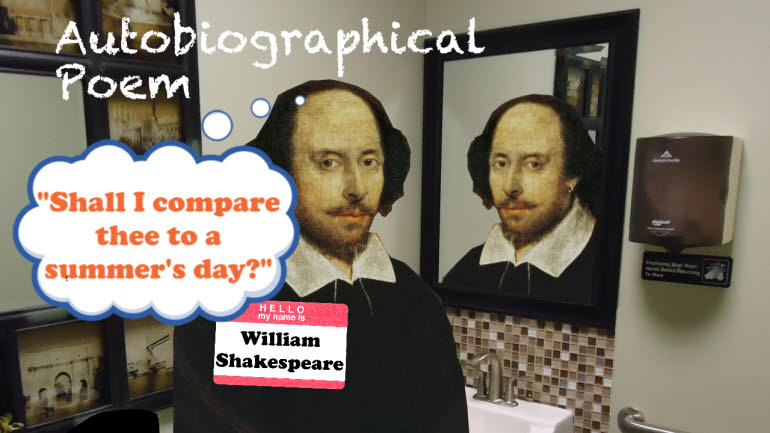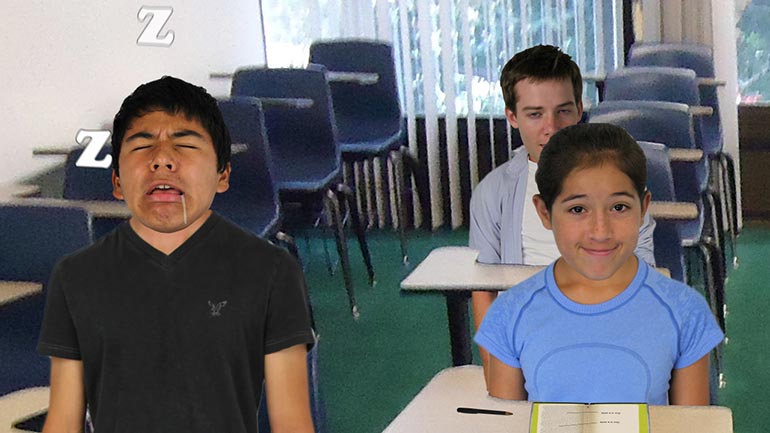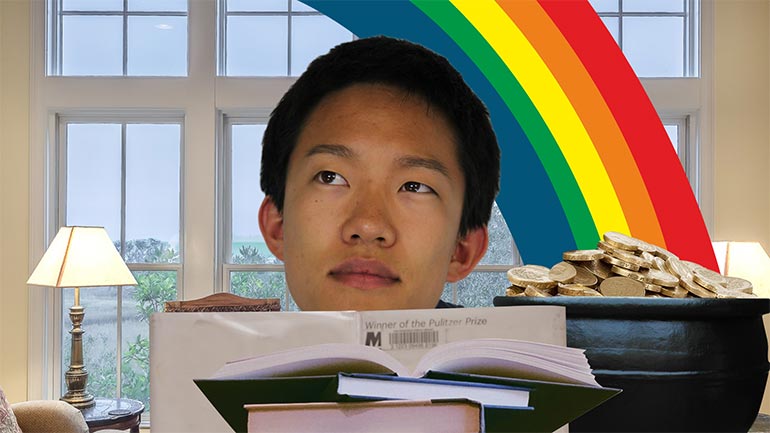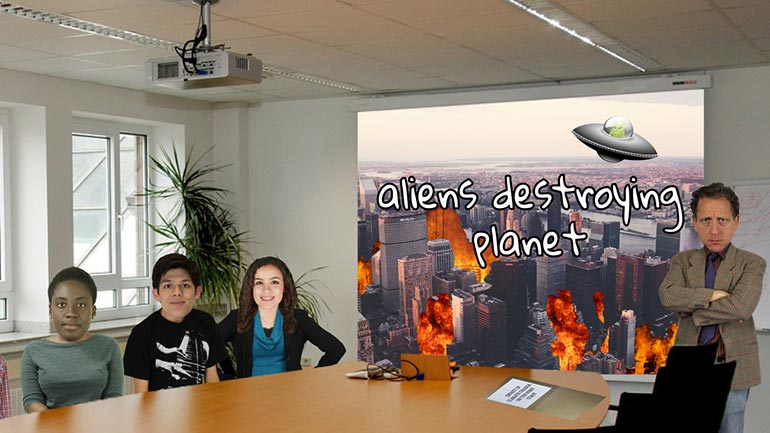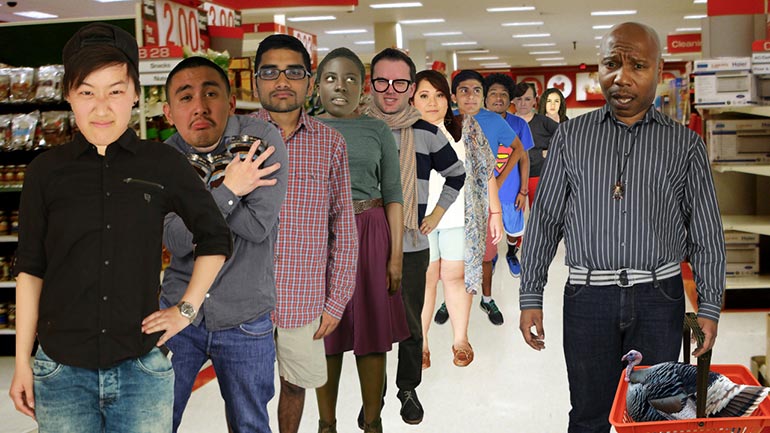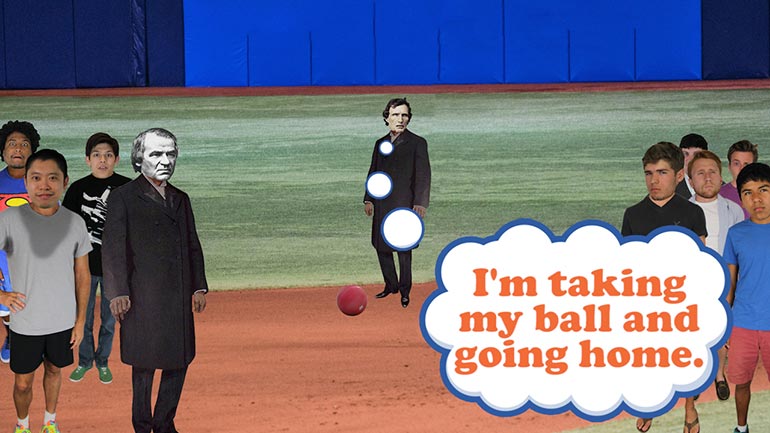ShmoopTube
Where Monty Python meets your 10th grade teacher.
Search Thousands of Shmoop Videos
Language Arts Videos 106 videos
Picking a theme for a party is pretty easy—always go karate party, because they come with nunchuck egg rolls. Themes in writing are a little diff...
Calling a book “non-fiction” is a bit like saying you have a dog. Sure it covers the basics, but there's a big difference between a Doberman an...
ELA Drills, Advanced: Punctuation 4. Which of the words is spelled correctly?
Scientists and Scientific Method 176 Views
Share It!
Description:
We hypothesize that this video will increase your knowledge of the scientific method and flying cats. We really pulled out all the stops on this one.
Transcript
- 00:05
[Dino and Coop singing]
- 00:13
If you were to imagine a world without science, what might it look like? [Two cavemen]
- 00:17
Well, there'd be no science classrooms...
- 00:19
And definitely no mad scientists...
- 00:21
And we'd also be lacking iPads, running shoes, candy that pops in your mouth, and other far [Pictures of the things appear]
Full Transcript
- 00:26
less important things, like modern medicine and electricity. [Doctors looking at a scan]
- 00:29
So yeah, the world would be a pretty different place without science.
- 00:32
And who do we have to thank for that?
- 00:34
Clowns!
- 00:35
What?
- 00:35
Ugh, no.
- 00:36
Who writes these videos…? [Clown with a toy balloon appears]
- 00:38
Let's try again.
- 00:39
And who do we have to thank for that?
- 00:41
Scientists!
- 00:42
And the scientific method.
- 00:44
That's better.
- 00:45
Let's start with some famous scientists…take, for instance, Thomas Edison. [Picture of Edison]
- 00:50
Tommy here invented the light bulb, the record player, and the motion picture camera. [Pictures of his inventions]
- 00:53
Now imagine a world without indoor lighting, music, or movies.
- 00:57
What kind of a world would that be? [Guy reading a book next to a fire that goes out]
- 01:00
And how about Henry Ford of the Ford Motor Corp, who invented the assembly line?
- 01:04
Without him, cars would take ages to build by hand, and we'd probably have a lot less [Footage of the production line]
- 01:08
of them.
- 01:09
Imagine a world with way less cars!
- 01:11
Why, that world would just be... well,
- 01:14
probably…greener…and with better smelling air… [Woman dancing in a field of flowers]
- 01:17
But hey, assembly lines are still great!
- 01:19
Alexander Graham Bell is another important scientist – after all, he did invent the telephone.
- 01:24
And a world without telephones is a world without mothers being able to nag their kids
- 01:28
all the time while they're away at college.
- 01:29
We wouldn't dream of taking that away from them. [Kid looks annoyed]
- 01:32
These scientists, and many, many more, used something called the scientific method to
- 01:36
conduct their experiments.
- 01:38
And this comes in six steps.
- 01:40
Step number one?
- 01:41
Make observations! [Coop pointing at a blackboard]
- 01:42
This is your starting step, where you look out into the world and try to figure out what [Kid looking at a cheeseburger]
- 01:46
it is you think is worth studying.
- 01:48
Step two is deciding what questions still need to be answered about whatever it is you've
- 01:52
decided is worth studying.
- 01:54
Once you've come up with a question worth asking, the next step is to make a prediction
- 01:57
about the outcome of your experiment that aims to answer that question.
- 02:01
Now that you've made your prediction, it's time to design and conduct your experiment. [Kid thinking about putting peanut butter on the cheesebuger]
- 02:05
This could mean combining chemicals in a lab, attempting to build a cool new kind of video [Explosion goes off in a science lab]
- 02:09
game controller, trying to make wings to allow your cat to fly, or even blending up something [Cat flying]
- 02:13
that definitely should not be blended. [Diet Coke can explodes in a blender]
- 02:15
After you've conducted your experiment, the next step of the scientific method is to analyze
- 02:19
the results.
- 02:20
This is where the scientist looks at exactly what happened during his or her experiment
- 02:24
and meticulously records all of the details. [Kid taking notes about the peanut butter cheeseburger]
- 02:28
And last but not least, it's conclusion time.
- 02:30
Developing conclusions based on the analyzed data is how we answer our questions from earlier. [Kid dancing in excitement about peanut butter]
- 02:35
By following these six steps, scientists have been able to turn our society into what it
- 02:39
is today.
- 02:40
And that means it's up to you to keep making cool scientific advancements! [Kid flying his cat around on a drone]
- 02:44
We're looking forward to flying cats in the near future…
Related Videos
Check out the best bias video ever made, courtesy of the most awesome and amazing educational website in existence.
No, this isn't a terrible new mint-peach bubble gum flavor...though it does tend to leave a bad taste in people's mouths.
Those settlers in Jamestown really should have settled down with all that land-stealing. Tobacco's bad for you anyway.
Being born out of multiple wars doesn't quite seem to fit the peaceful, polite Canadians we know and love today...oh wait, they were called The Bea...
Not every cartoon is meant to entertain small children while their mother gets some "Mommy time." There are also political cartoons, which are mean...
